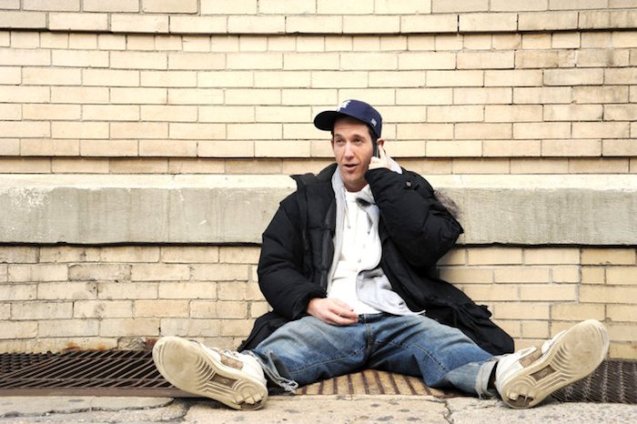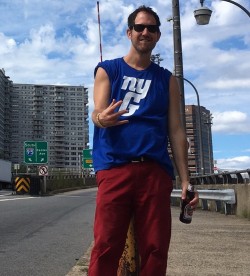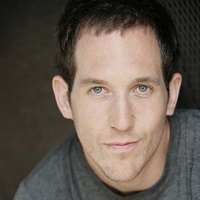
As I look at the homeless old black man on the bus, smelling like he hasn’t showered in days, his legs covered in scabs and swollen with edema, angrily muttering to someone not there about something incoherent, I feel bad.
I watch him observe the clean-cut, white hipster couple beside me, chuckling over whatever whispered wittiness they’d just exchanged and I wonder what he’s thinking.
Privileged. Ignorant. Parasitic invaders trampling on the proverbial grave of my home and culture!
Preach, brother.
His sour glances alternate with scanning the rest of the bus and revisiting hallucinations, but he always comes back to them. A visual reminder of all that is possible to have and all that he does not, and apparently cannot. I (try to) empathize with his pain that I suppose on half the days manifests as heartbreak, others as rage, and it appears today is the latter, though he’s managing, in spite of his disabilities, to restrain per society’s standards. In spite of the couple’s probable innocence and good nature, I wish to share in his anger. I look over at them, but they’d gotten off the bus a few stops ago.
He’d been looking at me.
15 and 20 years ago when I stomped around uptown, both as a comedian and juvenile delinquent, respectively, I felt looked upon as a celebrated anomaly—a courageous outlier, who just by being there, exhibited an open-minded attraction to a culture not my own as well as an admirable fearlessness for entering, unaccompanied, unassuming, unguarded.
Sure, there was the occasional “hater” and even mild aggressor at times, but for the most part, I always felt embraced and appreciated, as reciprocation for my appreciation. Today I feel like I’m just part of the problem: just another middle-aged white guy commuting to his cushy nine to five (which I don’t have) enabled by his cushy education (which I owe $200,000 for), and able to pay the kind of rent that the previous inhabitants cannot.
“I wish I could wear a sign,” I told my friend, “that lets everyone know that I was here before. I was here before they tore down the Lenox Lounge and erected luxury apartments and new trendy cafes and restaurants. I was here before it was expensive, before it was so safe or so white. I was here before Starbucks.”
There’s no way for the guy on the bus to know this, nor would he much care if he did.
Regardless of my unique experiences, the objective truth is that I will always have had two great parents and a great education. Nevertheless, I’ve rarely adopted much “white guilt,” mostly diagnosing it as a pretentious pandering via the perfect storm of bleeding Liberal heart minus real world exposure. I’ve known privileged black people as well as truly disadvantaged white people and suspect affirmative action as being as effective for long-term social improvement as pharmaceuticals are for chronic illness.
It’s a “branch treatment,” as we say in the (holistic) medical field—a proverbial band-aid on a symptom instead of addressing the root—and the recent surge of gentrification has forced me to revisit the idea of reparations.
A few years back, Spike Lee made a comment that there is something wrong with a white girl feeling safe walking around Brooklyn at night.
It was an immature and misdirected expression, as no one should ever have to feel unsafe, but I understood his underlying sentiment. When a neighborhood’s identity was once defined by its toughness and its visitors subsequently by their courage and savvy for thriving in it, there is a disappointment in watching said identity get hollowed out and filled in by some cookie-cutter culture, left amongst others in the insignificance of past glory.
In the late 90s my friends and I used to go every Thursday night to an 80s party at Don Hill’s, a spacious rock n’ roll dive in Greenwich Village. Weekly evenings of drunken debauchery and madness characteristic of the 20-something native New Yorkers who packed the place; they were mostly always peaceful and fun. If everyone didn’t know one another we were separated by two degrees at most, and the intoxicated celebration of friends and 80s pop classics was only partially tongue and cheek, albeit regularly followed by hip hop and blunts for the after party.
Somewhere around the turn of the century word must have leaked into the suburbs of this “cool spot” where “real New Yorkers” hang, and every week we saw more rosy-cheeked, overly buff, white dudes filling the dance floor in the button-up shirts they’d surely set aside for “going out in the city.”
Before we knew it this staple downtown party that had run for several years shut its doors. An era had ended.
The rich and white people, suburbanites and Upper East Siders, should be celebrated as key ingredients to New York’s diversity, but equally so are the poor and/or blacks, the struggling artists and/or Hispanics, and the furiously neglected culture that created hip-hop music in the Bronx in the late 70s.
This is one of my beefs: that everything “ghetto” is regarded as inherently flawed, and everything of material value as necessarily better.
While such a perspective isn’t necessarily racist, it is superficial and consistent with the minds of materialism usually guilty of it. Although there are flaws in ethnic cultures that we don’t see as much in “white culture,” the reverse is equally true. White metropolitans are more career-minded and less family-oriented. While you might be less likely to see us chilling all day on the block, unemployed, you are equally unlikely to see us chilling all night on the block rejoicing with loved ones. Instead, we are logging our 11th hour at the office, furiously grinding to put a down payment on a house somewhere that will even further decrease our sense of community.
This is a flaw.

In a vacuum, luxury condos are wonderful…until every building is a luxury condo and the greatest city in the world looks like a Midwestern suburb. Yuppies, hipsters and educated go-getters from the Midwest have every right to want to move here, and they’re beautiful…until they overtake the whole city and Brooklyn looks just like Tribeca, which looks like Alphabet City, which looks like Harlem, and another key ingredient to an amazing melting pot is lost.
New York is sadly shifting from a place that has rich neighborhoods to one that is a rich neighborhood—a place that originally blossomed via the mantra: “Give us your sick, your hungry, your poor,” to one that now requests: “Give us your wealthiest, and we’ll kick the poor out the door, tear down their floor, and give you much more…a fitness center and a roof deck for parties, though you’ll never have time to throw one if you want to afford it.
The homeless man on the bus looked to be about 60 (I mean, black don’t crack, but it might after smoking mad crack). This means that he was born around 1956, about 10 years before black people had “civil rights,” which means about 20 years before black people really had civil rights. This means he grew up with fewer opportunities because his parents grew up with zero opportunities, which means their lives were harder than most, which means they were probably angrier and more exhausted than most, which means their health was impacted, which means their happiness was impacted, which means their relationships were impacted.
Such a domino effect should not be difficult to understand for anyone over the age of 30.
Some might argue that we are all culpable for our lot in life—poor choices, addictions, or work ethic that got someone fired from that last job—and maybe in some instances this is part of the story. But if there’s one thing I’ve learned from studying medicine, it’s that the mechanisms to extreme results are always multi-factorial.
No amazing success is so only because of his/her brilliance and hard work, and no disastrous failure exists only because of the opposite.
I’ve heard (white) people pontificate: “They need to break the cycle,” but if external circumstances at least partially contributed to said cycle, then mustn’t the external contribute to its rectification? Have you managed to abstain from your parents’ same addictions to sugar and/or ridiculing of your significant other? Then how can you judge the heroin addiction and/or domestic abuse of those who had it so many times worse than you when said catalysts and behaviors parallel perfectly? Obviously, there are fortunate (black) kids who grew up without any stereotypical disadvantages, though it is also impossible to know what kind of opportunities may have been given to their parents or grandparents that still desperately elude most (black) families.
While Giuliani’s police state of the 90s did wonders to make the town safer, it did so by (indirectly) robbing resources from public schools. Poor kids whose parents grew up with parents who didn’t even have human rights are now being dealt a just barely better hand, which obviously attenuates the capacity to break cycles.
Why not acquire the reparations obviously due our black community by taxing the enormously wealthy building owners who are pricing out these people who were partially responsible for making this city so alluring in the first place? Why not allocate that money to education, from where it was once taken, in order to make the city so much safer in the first place? The new parks on the west side are beautiful and the new subway cars are much cleaner and nicer but these are luxurious amenities, symptoms of the rich getting richer.
Can anyone with half a brain or half a heart explain, beyond greed, why Riverside Park should be made so gorgeous before every single kid in the projects has the opportunity to the kind of education that will facilitate real growth and equal opportunity?
Author: David Foster
Image: Courtesy of Author
Editor: Catherine Monkman











Read 0 comments and reply